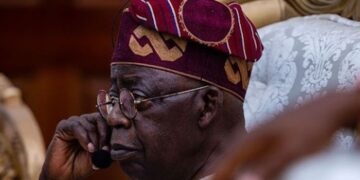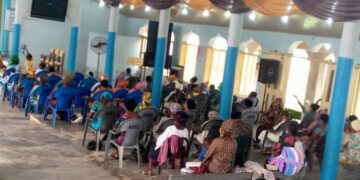Despite the widespread use of electronic transmission of results, the Independent National Electoral Commission (INEC) has announced that the collation of results for the 2023 general elections will be performed manually.
The disclosure was made by Festus Okoye, National Commissioner of INEC and Chairman of its Information and Voter Education Committee, in an interview with The Punch. Okoye emphasized that the commission would transmit results from polling units to its result-viewing portal, IReV, as seen in recent elections, but that the Electoral Act was clear on how collation should be done.
The process of transmitting findings and compiling results is very different. Voting methods and transmission of election results are left entirely up to the commission, as per Section 50(2) of the Electoral Act, 2022, he stated.
“Electoral Act sections 60 and 62 regulate the process and compilation of election results following an election. At the conclusion of the vote tally at a given polling place, the presiding officer is required by Section 60(1) of the Act to record the total number of votes received by each candidate on a form established by the commission.
To transfer the results, including the total number of accredited voters and the outcomes of the ballot, the presiding officer must follow the procedures established by the commission, as required by Section 60(5) of the Act. Following the recording and announcement of the results, the presiding officer shall submit the same, along with election materials, to such person as may be required by the commission, under security and accompanied by the candidates or their polling agents, when available.
“This means that the collation process is still largely manual, but the collation officer must collate subject to his verification and confirmation that the number of accredited voters stated on the collated result are correct and consistent with the number of accredited voters recorded and transmitted directly from polling units.”
While the final tally will “essentially” be determined by hand, Okoye says that in the event of a dispute over a collated result or the result from any polling unit, the original of the disputed collated result, accreditation data from the BVAS device, and the results transmitted directly from the polling unit will all be used by the collation or returning officer to determine the accuracy of the final tally.





























